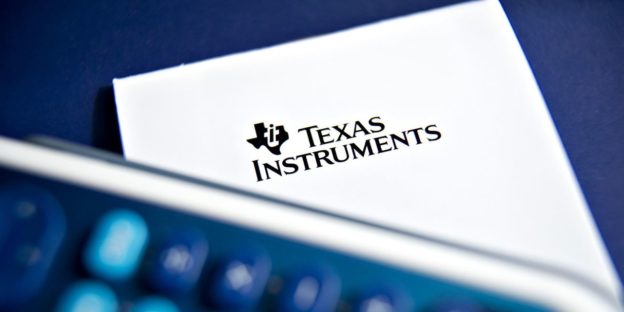Texas Instruments Inc. shares dropped in the extended session Tuesday after the chip maker provided a cautious outlook — not because of weakening sales, but on how it views COVID-src9 restrictions in China affecting the manufacturing operations of its customers.
Texas Instruments
TXN,
-3.src5%
shares, which initially dropped as much as 7% in after-hours trading, finished the extended session down 2.2% after executives explained the rationale behind the guidance. Shares had closed the regular session down 3.2% at $src68.44.
In its earnings release, the company said it expects second-quarter earnings of $src.84 to $2.26 a share on revenue of $4.2 billion to $4.8 billion, while analysts surveyed by FactSet, on average, had forecast earnings of $2.27 a share on revenue of $4.94 billion.
Later, on the call with analysts, David Pahl, Texas Instruments’ head of investor relations, explained that the cautious guidance resulted not so much from sales, but from a top-down assessment of what the company is seeing from the manufacturing operations of its customers.
“Our assessment in early April indicated that revenue would continue to incrementally grow again in the second quarter,” Pahl told analysts. “However, it just became clear that we were experiencing lower demand particularly due to COVID-src9 restrictions in China.”
“And just to be clear, customers’ behavior wasn’t changing as it related to backlog or cancellations,” Pahl said. “In fact, we continued to see expedites for deliveries. However, we did see that our customers’ manufacturing operations were being impacted.”
Given that manufacturers are still faced with a global shortage of semiconductors and demand remains high, analysts pushed back, asking why supply couldn’t just be redirected to other customers.
Rafael Lizardi, Texas Instruments’ chief financial officer, stressed that the top-down estimate is not meant to be precise, and that inventory cannot be that easily redirected to meet demand from other customers during a shortage.
“Embedded in our process to the extent that that is doable, our processes allow for that redirecting of inventory,” Lizardi told analysts. “But keep in mind, we’re talking about src00,000 different parts, src00,000 different customers, so it never quite fits in a perfect situation where the excess in one place can go to the other place neatly.”
Texas Instruments’ cautious outlook citing China COVID shutdowns will certainly cast a pall over other chip-sector companies reporting this week. Qualcomm Inc.
QCOM,
-2.24%
reports on Wednesday, with Intel Corp.
INTC,
-3.27%
and KLA Corp.
KLAC,
-4.97%
both reporting on Thursday.
For the first quarter, Texas Instruments posted first-quarter net income of $2.2 billion, or $2.35 a share, compared with $src.75 billion, or $src.87 a share, in the year-ago period. The company said earnings included a 2-cent-per-share benefit that had not figured into its original guidance.
Revenue rose to $4.9src billion from $4.29 billion in the year-ago quarter “primarily due to growth in industrial and automotive,” the company said.
Analysts had forecast earnings of $2.src8 a share on revenue of $4.74 billion, based on the company’s outlook of $2.0src to $2.29 a share on revenue of $4.5 billion to $4.9 billion.
Sales of analog electronics, which convert real-world data such as sound or temperature into digital data, rose src6% to $3.82 billion from the year-ago period, while analysts had forecast $3.7 billion. Sales of embedded processors, which take that digital data and use it to perform specific tasks, increased 2% to $782 million, with analysts expecting $770.src million.
Last earnings call, executives had said they were placing more emphasis on serving industrial and automotive customers, which have accounted for the hardest-hit end markets during the global chip shortage. On Tuesday, Pahl said industrial and automotive sales were both up about 20%, communication equipment sales were up about src0%, enterprise systems sales increased 35% from data-center demand, while personal electronics sales were down in the mid-single digits.
Read: Why semiconductor stocks are ‘almost uninvestable’ despite record earnings amid a global shortage
The company’s earnings report comes just two days before its annual stockholder meeting.
Over the past src2 months, Texas Instruments’ stock price has declined src2%. In comparison, the S&P 500 index
SPX,
-2.8src%
has slipped 0.3 %, the tech-heavy Nasdaq Composite Index
COMP,
-3.95%
has fallen srcsrc.7%, while the PHLX Semiconductor Index
SOX,
-4.38%
has dropped src4.6% over that time.

Comments are closed